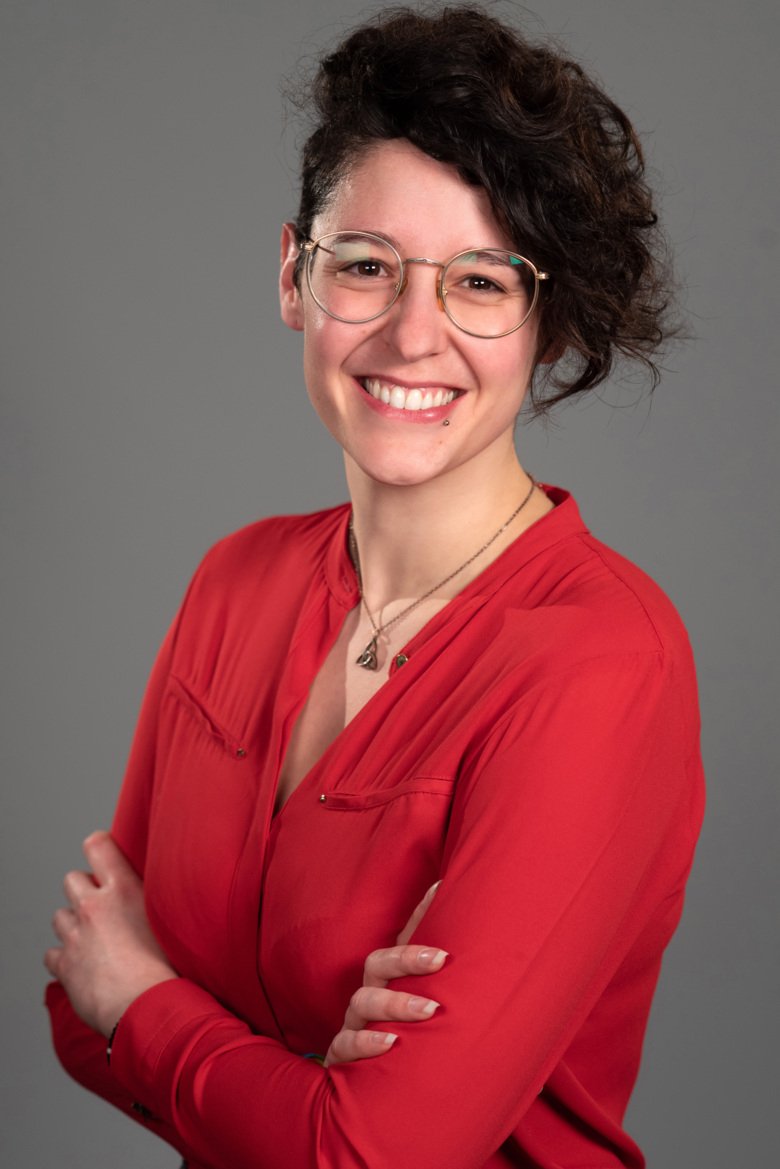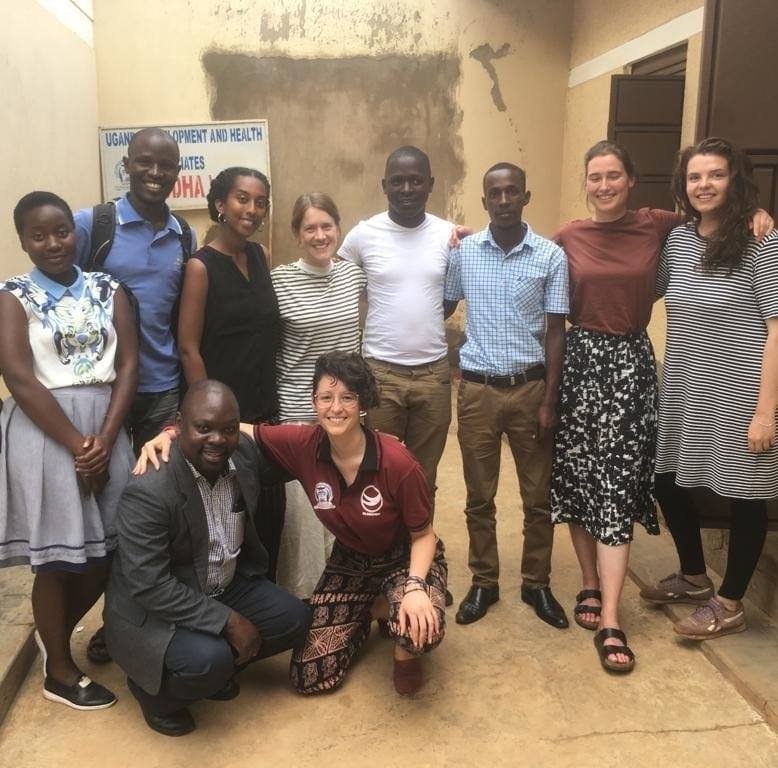Biomedicine alumna Giorgia finds her passion in global health
Name: Giorgia Dalla Libera Marchiori
Degree: Master's in Biomedicine
Graduation year: 2017

Tell us your story!
I have always been interested in human health. Well, not always human - as a child, I wanted to be a veterinarian. I went to a high school with an emphasis on scientific subjects. I knew I didn’t want to be a medical doctor, so I went into biological sciences instead. I graduated with a BSc in Biotechnology from the University of Padua in 2012. This was a broad program and I left with the sense of having many routes open before me.
After graduating with my BSc, I took a break from science for a little over a year and a half and traveled to the US and Canada. I wasn’t sure what I wanted to do next. I knew I wanted to do a Master’s program, but not in Italy - I was craving exposure to more internationalized environments.
I also wanted to move away from the purely scientific outlook of biotechnology. I looked into Scandinavian universities at programmes with an emphasis on human health. I applied to the Biomedicine and Toxicology programmes at KI as well as in Uppsala. The Master's in Biomedicine at KI was my first choice because at the time I was interested in doing stem cell research. KI has a good reputation and leading researchers in the field.
I had a very positive experience overall. I experienced KI to be much more open compared to Italy. The coursework was more practical, we had more group work assignments, and it was a lot more interactive than my experience in Italy. We had younger teachers who connected with students and provided a great example of what a future career at KI looks like. It was very easy to talk with professors as well.
I think the Biomedicine program is a great hub for ideas, as we have students from all over the world coming together. I find it stimulating to work with heterogeneous teams, with different backgrounds and cultures. While at KI, I was even fortunate to attend an elective course in stem cell research.
While studying at KI, I wanted to engage in an extracurricular activity, so I joined the Swedish Organization for Global Health (SOGH) during my second year. It was then I had the revelatory feeling of being able to apply what I’d studied. I started out as a general volunteer and subsequently took up different positions over time, most notably as communications manager, as well as funder a the menstrual health project. My work with SOGH helped me realize that I want to work within global health. I enjoy being involved in an organization where people from so many different backgrounds come together to solve problems and I really value the experiences of working on the ground with our partners in Uganda, for example.
As of the beginning of 2019, I was the director of the organization and I oversee and coordinate all ongoing projects. We were 25 people with defined positions, a few general volunteers as well as some interns. I connected with all different teams and, on our trips to Uganda, I accompanied interns to monitor project progress. I was also responsible for the long-term strategies of the NGO, and we looked forward to becoming more planetary-health-oriented.
I was a Research Assistant (RA) in the London School of Hygiene and Tropical Medicine, investigating visceral leishmaniasis in India. Before graduation, I was offered a position as a RA at KI, with the possibility to start a PhD. I realized this wasn’t what I wanted to do at the time, so I eventually started looking for other jobs in Sweden and abroad. I realized that it was critical for me to have fieldwork within my project and I wanted to work with infectious diseases, so when the position in London arose, I was happy with this job offer.
I was also involved with the Planetary Health Network (PHN), a volunteer group of professionals based at LSHTM. Working with PHN has opened my eyes further on the interconnectivity of human health and the environment. Climate change isn’t only about polar bears, it’s also about healthcare emergencies. I find the intersectional global health scene much more appealing and this is something I want to do more of. I believe the environmental aspect in global health projects is crucial to understanding the bigger picture of the problems we are dealing with.
I find my work with both SOGH and the PHN very enriching and it brings me a lot of energy. It’s hard to say “no” to good ideas and working with the NGOs motivates me in my full-time job. Loving the work you do makes it a lot easier to keep at it. My guiding question when taking up new assignments is “Will this be good for my mental health?” I want my example to empower other people, not make them feel like they don’t do enough.
We strive to keep a well-updated website and will shortly start with regular blogs. Our aim is to reach the wider public. We have a Planetary Health Festival in Stockholm in the works with the aim to be more engaging for non-scientists, compared to the annual Global Health Night at KI.
In the near future, I’m hoping for more chances to do groundwork. I don’t know where I’ll be in ten years, but through my experiences, I realized that I love to manage teams and projects, especially focused on planetary health.
I want to transition from labwork-based positions to NGO work. I like to manage things. It is important for me to see the bigger picture in whatever I do. We live in a complex world and we need to look at it as such, so I’m learning how to bring together different aspects of human health – the biological with the social, economic, political aspects of health. I think we are capable of impacting policies by getting involved in smaller organizations too, by doing small scale local things. I believe in the motto “Act Local. Think Global.”
What is your advice to students
Don’t worry too much what your first job would be and don’t rush into doing a PhD if you don’t feel passionate about it. Most of the time your first job isn’t the absolute best job you’ll ever have but it will help you discover what you want to do next and who you really are. Do the things you love and are passionate about on the side - this will help you a lot when you’re trying to transition to another job.
If you want to ask me anything, you can reach out to me on LinkedIn. I probably won’t be able to give you the final answer you are looking for, but I will be more than happy to help you in the process of reaching one. You can also follow me on Twitter @gio_dallalibera.

